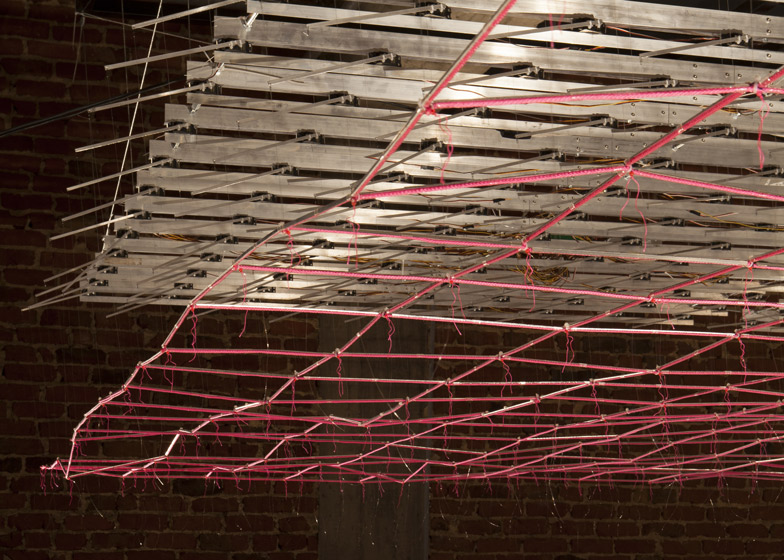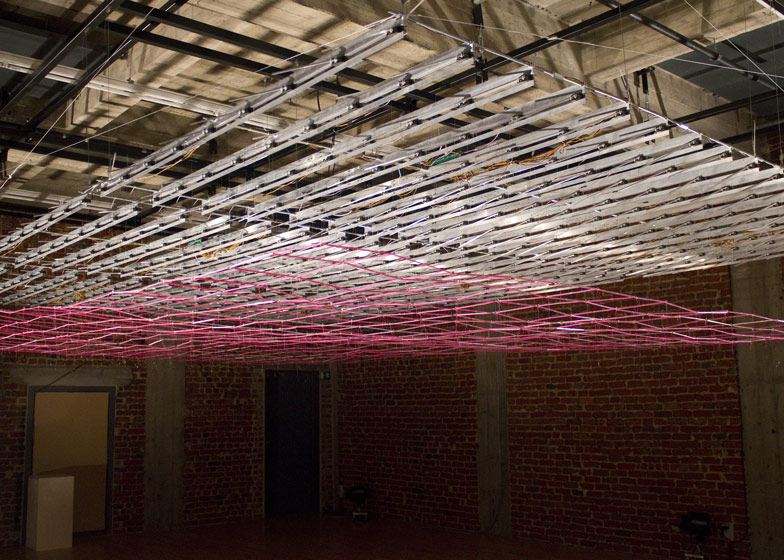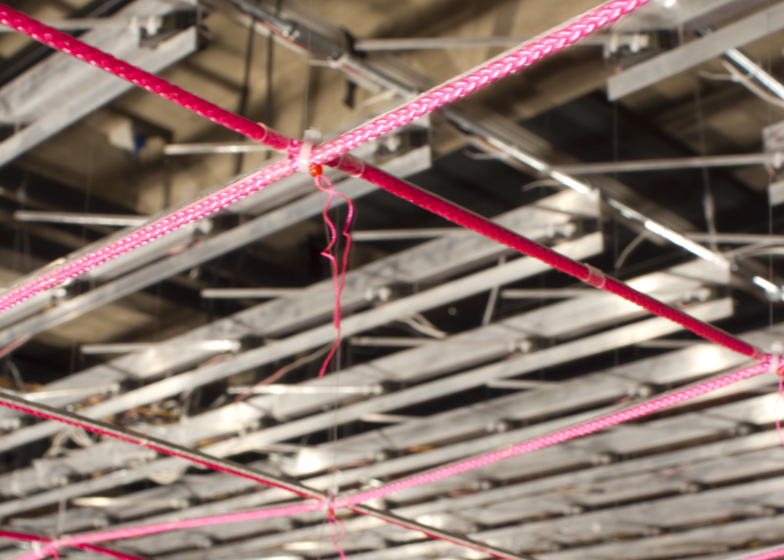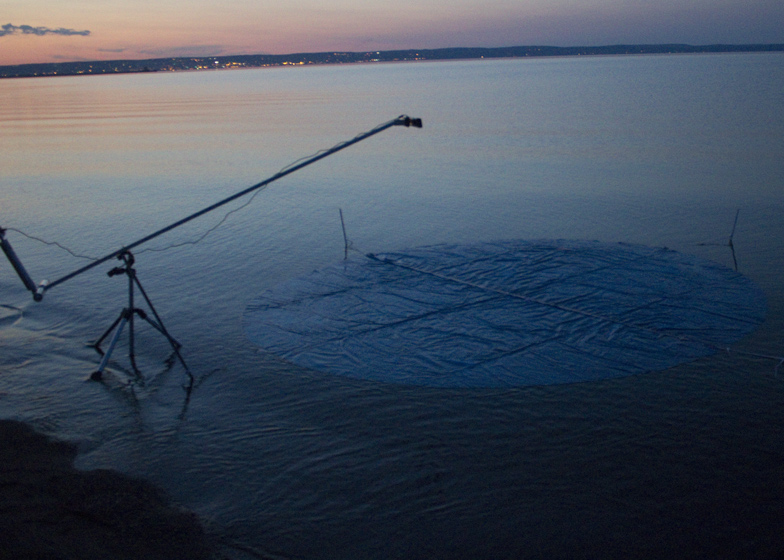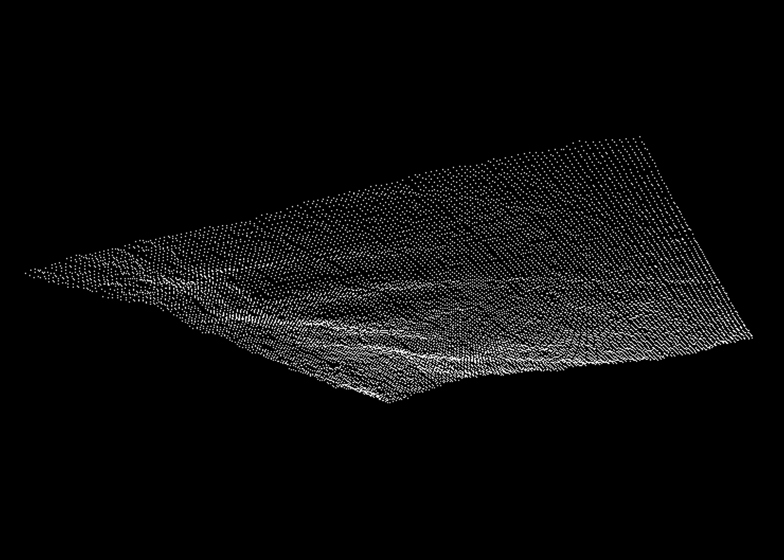Interieur 2012: data from the ripples of a nearby river animated this mechanical installation by American artist and designer David Bowen, which hung over visitors' heads at the Interieur design biennale in Kortrijk, Belgium, last week (+ slideshow).
Called Underwater, the installation used a Microsoft Kinect motion sensing device to collect real-time data about the dynamic surface of the nearby river Leie.
Above: photograph is by Frederik Vercruysse
The water's movement was then simulated in the suspended grid through 486 servo motors – small motors coupled to sensors that precisely control their position. Viewed from below, the kinetic installation gives visitors the impression of being underwater.
The installation is a response to the theme of Future Primitives set by Interieur, explained Bowen. "The goal of the future primitive within the Underwater installation is to create a sophisticated system that provides an immersive mechanical perspective of a natural, dynamic and ageless phenomenon," he said.
"My work is concerned with the aesthetics that result from reactive and generative processes as they relate to the intersections between natural and mechanical systems," he added.
Above: image shows the point cloud representation of the installation
Other projects in the Future Primitives series we've featured on Dezeen include a furniture collection combining shelves with leather seats like deckchairs and a concept car designed to trigger an emotional response.
Above: image shows the number field used in the installation
At Interieur 2012 we also reported on a collection of furniture that expands like popcorn and a concrete lamp based on an interwar military listening device.
See all our stories about installations »
See all our stories about water »
See all our stories from Interieur 2012 »
Photographs are by David Bowen except where stated.
Here's some more information from the designer:
Underwater is a large-scale suspended installation that gives the impression of being under the surface of water. Using a Microsoft Kinect, the device I have developed collects real-time surface data from water and is used to articulate the mechanical installation. The complex and subtle movements on the surface of the water are simulated within the installation by hundreds of servo-motors moving according to the collected data.
The Kinect is a game controller that uses an infrared array to create real-time 3D models of spaces, objects and people in motion. To capture the data for this piece, I have modified the device to be situated above the water surface and directed to view a floating membrane in the water. As the water waves and ripples, the Kinect tracks the movement of the membrane. This movement is transferred to a complex grid of data points, collected within the system and sent to the installation in the gallery space as the membrane floats on the water.
Each of the 486 servo-motors within the installation grid is connected to one data point whose movement will correspond directly to the movement of its respective point on the water membrane. The mechanical result mimics the subtle, complex and dynamic movement of the water viewed from below the surface.

